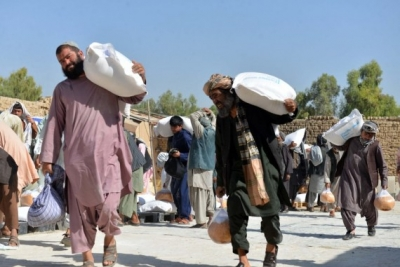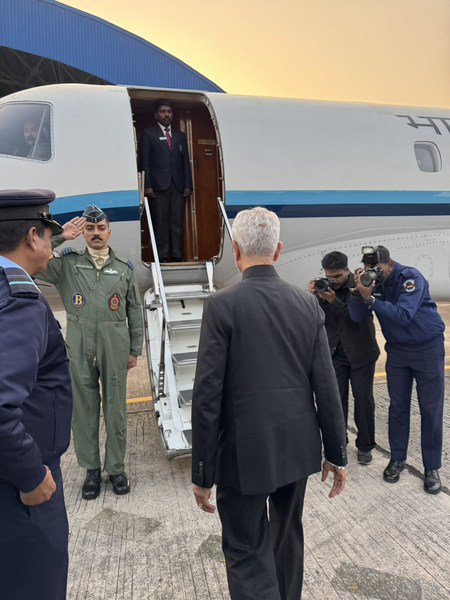
Kabul, Oct 2 (IANS) According to the United Nations, more than nine million people in Afghanistan are facing acute food insecurity with deteriorating malnutrition threatening children and vulnerable families around the country, the local media reported on Thursday.
The World Food Programme (WFP) has warned that the recent earthquake has deteriorated an already dire food security and nutrition crisis in Afghanistan. In its report released on Thursday, the WFP said more than nine people are facing acute food insecurity, while severe malnutrition among children and mothers has reached record levels, leading Afghan news agency Khaama Press reported.
As per the report, the Eastern Afghanistan region, especially Kunar and Nangarhar provinces, have been the most impacted. These areas were already facing critical malnutrition before the earthquakes occurred in Afghanistan and conditions have now further worsened.
The return of Afghan people after repatriation from Pakistan has further increased pressure on scarce humanitarian resources, worsening the situation for both displaced people and host communities.
So far, WFP has provided emergency food assistance to over 58,000 people in Kunar, Laghman and Nangarhar provinces. However, the agency warned that many remote mountainous areas remain cut off due to rough terrain, poor roads and weak communications.
The agency stated that shortages of funds are severely restricting its response capacity. Through the current resources, aid can only be given to fewer than one million people per month, with a funding gap of around USD 622 million for the next six months. Humanitarian experts warned that most vulnerable people, especially women and children, in quake-affected areas, risk facing catastrophic levels of hunger if urgent funds are not provided.
Last month, the WFP warned that hunger in Afghanistan is increasing sharply and raised demand for urgent funding to deliver aid before winter isolates vulnerable communities across the nation. On September 18, the WFP said urgent funding is required to provide food before winter cuts off remote villages, leaving families without important supplies.
WFP’s Deputy Executive Director Rania Dagash Kamara stated that needs remain “vast and immediate” and warned that millions of more Afghans could be pushed into extreme hunger in the coming months if new resources are not provided.
The crisis has been further exacerbated by the United Nations High Commissioner for Refugees’ (UNHCR) decision to suspend cash assistance programmes across the nation after September 9 following restrictions imposed on female staff.
–IANS
akl/as




